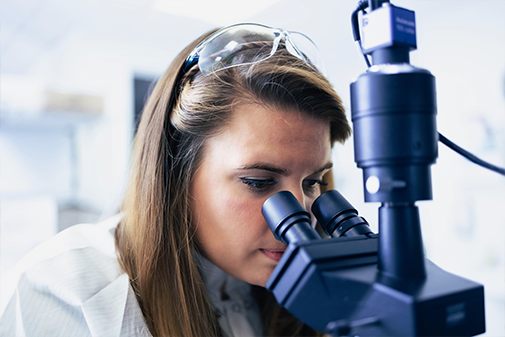Biocompatibility and Genotoxicity Assays

Biocompatibility and genotoxicity testing is a vital part of ensuring the safety of medical devices. These assays are also required as part of the regulatory submission process for cosmetics and drugs in the United States, Canada, and the European Union. Biocompatibility tests measure cytotoxicity, sensitization, and irritation.
LifeNet Health LifeSciences can support these efforts with in vitro assays, many of which are accepted as full replacement models following ISO 10993 and OECD Testing Guidelines. This can help reduce reliance on traditional animal testing.
We offer flexible, customized approaches to help solve challenges. Our team has 60-plus years of combined experience with in vitro testing.
Our facilities are compliant with Good Laboratory Practices and Good In Vitro Method Practices (OECD 286).
Connect with an expert
The Value of In Vitro Options
Many testing standards and guidelines back the use of in vitro options to determine biocompatibility and genotoxicity of materials and medical devices. General mammalian cell cytotoxicity (ISO 10993-5), dermal irritation (ISO 10993-23), genotoxicity (OECD 471 & 487 / ISO 10993-3 and ISO 10993-33) and hemocompatibility (hemolysis / hemoglobin denaturation / clotting) can all be evaluated with in vitro test systems.
Tests We Offer
- Cytotoxicity – ISO 10993-5 (MEM Elution)
- Skin Irritation – ISO 10993-23 (3D Skin)
- Hemocompatibility (Hemolysis/Hemoglobin Denaturation/Clotting)
- Genotoxicity: Ames - 2 Strains or 5 strains (ISO 10993-3/ISO 10993-33 & OECD 471)
- Genotoxicity: Micronucleus Assay (ISO 10993-3/ISO 10993-33 & OECD 487)
Expert Regulatory Guidance
- FDA
- EPA
- Health Canada
- European Food Safety Association
- European Medicines Agency
Our Process Sets Us Apart From Other Laboratories
Consultation – We partner with you to determine the best approach, offering customized study plans that draw from our 60-plus years of combined in vitro testing experience. We may recommend utilizing more than one assay when performing a thorough cytotoxicity screening. Whenever possible our team focuses on mechanism-based endpoints of cell health.
Assay Development – We develop and validate your assay using many different cell models, with an emphasis on all-human primary cells and biospecimens to simulate in vitro conditions, which provides more relevant, reliable results than traditional testing methods. This is part of our commitment to advancing alternative methods to support organizations in moving away from traditional animal-based models.
Data Analysis – We provide expert data analysis, including offering adaptable options when needed based on early results.
Results Review – Our clear, concise reports bring simplicity to your biggest data challenges, putting your organization in the best position for regulatory reviews. We may suggest follow-up studies to further your organization’s research goals.
